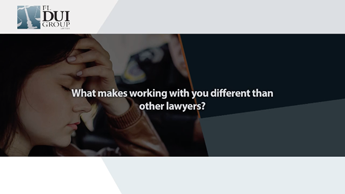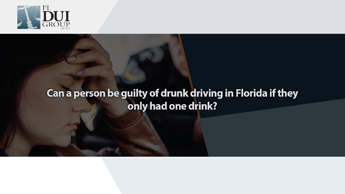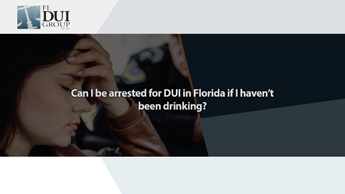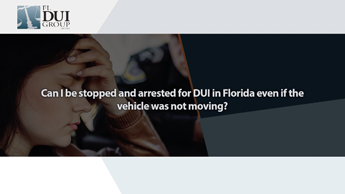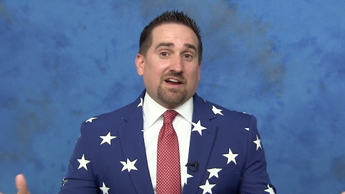Florida Traffic Stop Attorney
The police must have reasonable suspicion to pull you over, and they need probable cause to make an arrest. Sometimes, officers may pull you over with the least amount of suspicion (or none at all) and use that traffic stop to develop the probable cause they need to make you take a breath test. If that test shows your blood alcohol content (BAC) to be .08 or more, they now have a strong DUI case against you, all based on a traffic stop that may have been questionable in the first place.
Phrases like “reasonable suspicion” and “probable cause” are legal terms that play a significant role in a DUI arrest or trial based on a questionable traffic stop. At FL DUI Group, we concentrate our practice on DUI defense in Orlando and central Florida. We thoroughly investigate all the circumstances surrounding a traffic stop that leads to a DUI arrest. If the reasons for the stop were groundless, or if law enforcement conduct during the stop exceeded acceptable boundaries, we’ll fight to uphold the law, protect your rights and have your case dismissed. Call the Florida traffic stop attorneys at FL DUI Group for immediate assistance after a traffic stop and DUI arrest in Orlando or central Florida.
What counts as reasonable suspicion to investigate you for DUI in Florida?
To investigate you for suspicion of DUI, the police need to have reasonable suspicion that you were driving or in actual physical control of a vehicle and that you are impaired. This suspicion can be based on observation of one or more “indicators of impairment.”
NHTSA indicators of impairment
The National Highway Traffic Safety Administration (NHTSA) created a training guide for police officers called The Visual Detection of DWI Motorists. Initially, NHTSA interviewed police officers about what sorts of cues tell them a person may be driving under the influence. These interviews resulted in over 100 different driving cues. Next, the NHTSA conducted three field studies, which brought the list down to 24 cues. These cues can be grouped into four broad categories and include the following:
- Maintaining Proper Lane Position – weaving in the lane or across lanes, straddling the lane line, swerving, turning with a wide radius, drifting
- Speed and Braking – stopping too short before or too far into an intersection, driving with varying speed, driving too slowly
- Vigilance – responding slowly to traffic signal changes, offering a slow response to officer signals to pull over, driving without headlights at night, failure to signal a turn or lane change
- Judgment – following too close, improper turn or lane change, stopping inappropriately in response to the officer’s commands to pull over
By the NHTSA’s own admission, these cues accurately predict that someone is DUI as little as 35% of the time. Different cues carry different weight, and the presence of more than one cue raises the probability that these cues actually predict drunk driving. How many of the cues listed above can you imagine being the product of something other than intoxication, such as fatigue, distraction, a momentary lapse in attention, simple forgetfulness, etc.?
Post-stop NHTSA cues for DUI
The police do not have to suspect you of driving under the influence in order to pull you over initially. For instance, you can be pulled over if you have an outstanding warrant, for a vehicle equipment violation such as a broken taillight, or for any moving violation such as speeding or failing to signal a turn or lane change. Once you’ve been pulled over, the police may use this traffic stop to determine whether you have been drinking and may be driving while impaired. Whether you were initially suspected of drunk driving or not, there are a number of cues that the police will look for during the stop in order to establish the probable cause necessary to make you take a breath test. These cues include:
- Displaying difficulty with motor vehicle controls
- Showing difficulty exiting the vehicle
- Fumbling with your license or registration
- Repeating questions or comments directed at you by the police
- Being slow to respond to police officer questions or commands
DUI Breath Test and Consequences
If the police believe they have cause to make you take a breath test, you have already given your “implied consent” to submit to this test when you got your driver’s license. Refusing to take the test results in the immediate suspension of your driver’s license. It also deprives you and law enforcement of evidence that could be used to convict you or exonerate you, depending on the outcome of the test.
While you are required by law to take a chemical breath test when ordered by the police, you are not required to submit to field sobriety tests, even though the police make it seem like you are. These tests are used to build up probable cause to make you take a breath test. You can refuse field sobriety tests without losing your license, but the evidence of your refusal may still be used against you.
If the police pulled you over without reasonable suspicion or other legal grounds, or if they make you take a breath test without probable cause, an experienced DUI defense attorney at FL DUI Group knows the law and legal procedures to get your case dismissed or take other appropriate action. We examine all of the circumstances surrounding a traffic stop and build a smart strategy and strong defense to get you the best result in your DUI case.
Call FL DUI Group after a DUI Traffic Stop in Florida
For help after a questionable stop that led to a DUI arrest in Orlando or central Florida, call FL DUI Group at 321-256-1141 to schedule a free case evaluation.

